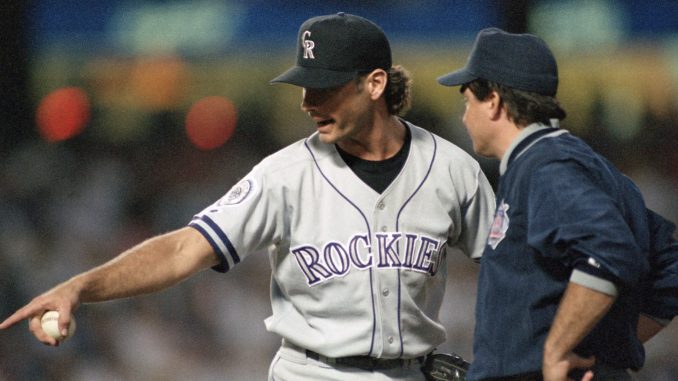
North State Journal’s 100 in 100 series will showcase the best athlete from each of North Carolina’s 100 counties. From Alamance to Yancey, each county will feature one athlete who stands above the rest. Some will be obvious choices, others controversial, but all of our choices are worthy of being recognized for their accomplishments — from the diamond and gridiron to racing ovals and the squared circle. You can see all the profiles as they’re unveiled here.

Chatham County
Greg Harris
Greg Harris’ middle name is Wade, which is important for baseball purposes because, during the late 1980s and early ’90s, he wasn’t the only Greg Harris playing in the major leagues. Thus he became known as Greg W. Harris, differentiating him from fellow right-hander Greg A. Harris.
Though he might easily have been confused for somebody else during a pitching career that lasted eight seasons with the San Diego Padres, Colorado Rockies and Minnesota Twins, he was the only Greg Harris that mattered to the folks back home in Siler City.

He made a name for himself first at Jordan Matthews High School and then at Elon, where he blossomed into a prospect by earning all-conference honors in both 1984 and ’85 while leading the team in both complete games and saves. Drafted in the 10th round by the Padres following his college career, Harris advanced rapidly through the organization, earning his team’s Minor League Pitcher of the Year award in 1987 before making his major league debut as a September call-up in the following season.
Relying on a sweeping curveball that was considered one of the best in baseball, Harris enjoyed five successful seasons with the Padres while pitching both as a starter and out of the bullpen, compiling a 2.95 career earned run average that is still the second-best in team history behind Hall of Famer Trevor Hoffman. But his career took a severe downturn late in 1993 when he was traded to Colorado.
He eventually retired in 1997 after 243 games, 45 wins, 16 saves, 605 strikeouts and two shoulder surgeries, one of which was botched so badly that he was awarded more than $16 million in damages in two separate lawsuits.



